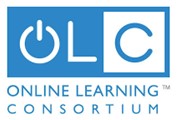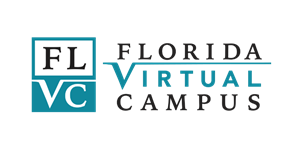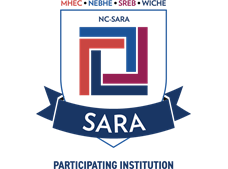Online Learning Consortium (OLC)
 |
The Online Learning Consortium™ (OLC) is a collaborative community of higher education leaders and innovators focused on advancing quality digital teaching and learning experiences. Founded in 1999, OLC has established itself as a leading resource for everything related to digital learning, supporting thousands of educators with expert guidance, professional development, and resources.
|
Mission and Goals: OLC is dedicated to promoting quality in online education. Its mission revolves around advancing best practices in digital learning through research, professional development, and community engagement. The consortium's goals include:
Quality Focus: OLC emphasizes quality in all aspects of digital education, from institutional offerings to advisory services.
Five Dimensions of Quality Online Education:
- Learning Effectiveness: Ensuring that online learning is academically rigorous and effective in achieving learning outcomes.
- Faculty Satisfaction: Supporting instructors with professional development opportunities and recognition.
- Student Satisfaction: Providing students with a sense of belonging, support services, and valuable learning experiences.
- Scale: Sustaining high-quality education for a large number of learners without sacrificing standards.
- Access: Promoting inclusive practices and removing barriers to education for diverse learner populations.
Equitable and Sustainable Application of Quality: OLC promotes the application of quality standards that are equitable and sustainable, aligning with institutional missions and values.
Quality Framework: OLC's quality framework is based on the Five Dimensions of Quality Online Education. These dimensions are critical for institutions to assess and continuously improve their online and blended learning efforts. They ensure that educational experiences are inclusive, rigorous, and aligned with learners' needs and institutional goals.
Key Components
- Learning Effectiveness: Online, blended, and digital education models are designed to facilitate inclusive and academically rigorous experiences that engage learners and promote community.
- Faculty and Learner Satisfaction: Instructors are supported with professional development and opportunities to contribute to decision-making processes that affect them and their students. Learner satisfaction is measured through self-assessment, persistence metrics, and career placement records.
- Scale and Access: Institutions increase enrollment and retention while maintaining quality standards by balancing costs and resourcing. They provide access to a wide range of learners through inclusive practices and support services.
Evaluation and Measurement:
OLC evaluates the success of its framework through ongoing assessment and feedback from stakeholders. This includes analyzing enrollment data, learner feedback, and institutional practices to identify areas for improvement and ensure that quality standards are met.
Commitment to Equity and Innovation:
OLC is committed to addressing the needs of marginalized populations and removing barriers to education through inclusive practices and the use of universal design principles. It promotes an environment where all learners can thrive personally and professionally, contributing to a more equitable educational landscape.
Florida Virtual Campus (FLVC)
 |
Florida Virtual Campus (FLVC) operates as a centralized, shared-services organization supporting all 40 public colleges and universities in Florida. It is not an educational institution but rather provides critical support services, including library resources, distance learning support, IT/networking, student advising, and education programs.
FLVC collaborates with Florida's entire education community to develop free services that help students prepare for and succeed in college and prepare for careers after graduation. It is funded by the Florida Legislature and managed by Florida State University's Northwest Regional Data Center.
|
Core Services of FLVC:
- Centralized library system used by all 40 public colleges and universities in Florida.
- Support services for statewide higher education distance learning.
- Centrally-licensed, statewide portfolio of library e-resources.
- Statewide website, FloridaShines.org, providing student access to all FLVC services.
- Resources for college and career planning.
- Online transfer options for students.
Statewide Impact:
FLVC's services are integral to Florida's education community, supporting all public postsecondary institutions within the Florida College System (FCS), the State University System (SUS), and K-12 school districts. All tools and resources provided by FLVC are available at no cost to students.
About FLVC:
FLVC's centralized, shared-services model enhances efficiency, generates value, and saves costs for the state of Florida. It optimizes the use of college/university staff, capital, and time, providing significant dividends to the education system.
National Council for State Authorization Reciprocity Agreements (NC-SARA)
NC-SARA:
 |
Palm Beach State College has been approved to participate in the National Council for State Authorization Reciprocity Agreements (NC-SARA).
The National Council for State Authorization Reciprocity Agreements (NC-SARA) is a nonprofit organization (501(c)(3)) that was established to facilitate access to educational opportunities through the regulation of distance education programs. Here are more detailed points about NC-SARA and its significance:
|
1. Establishment and Purpose: NC-SARA was established in 2013 by higher education stakeholders, including state regulators, education leaders, accreditors, and the U.S. Department of Education. Its primary goal is to streamline regulations for distance education programs through the State Authorization Reciprocity Agreements (SARA).
2. SARA and Regional Compacts: NC-SARA operates in partnership with four regional higher education compacts (Midwestern Higher Education Compact, New England Board of Higher Education, Southern Regional Education Board, and Western Interstate Commission for Higher Education). These compacts work together to administer SARA and ensure its effectiveness across states.
3. Participation: Currently, SARA has participation from over 2,400 institutions across 49 member states, the District of Columbia, Puerto Rico, and the U.S. Virgin Islands. Institutions voluntarily participate in SARA to improve the quality of distance education, increase access for students across state lines, and reduce regulatory costs and bureaucracy.
Benefits
Improved Program Quality: SARA enhances the quality of distance education programs through standardized regulatory practices.
Increased Access: It makes it easier for students to access distance education programs offered by participating institutions across different states.
Cost and Bureaucracy Reduction: SARA reduces costs and bureaucratic hurdles for both states and institutions by streamlining regulatory processes.
Coordination and Oversight: It improves coordination between states on higher education opportunities and provides valuable oversight of distance education programs.
Data Sharing: SARA facilitates the sharing of out-of-state learning experience data, such as clinical hours and practice teaching, to ensure program quality and regulatory compliance.
Regulatory Framework: Under SARA, institutions adhere to established national standards for distance education. This ensures that students receive a high-quality education regardless of where the institution is located.
Impact: NC-SARA and SARA have had a significant impact on expanding educational opportunities for students, particularly in distance education, by creating a more uniform and efficient regulatory environment across participating states.
In summary, NC-SARA plays a crucial role in supporting the growth and quality of distance education programs by harmonizing regulations and fostering collaboration among states, institutions, policymakers, and students.